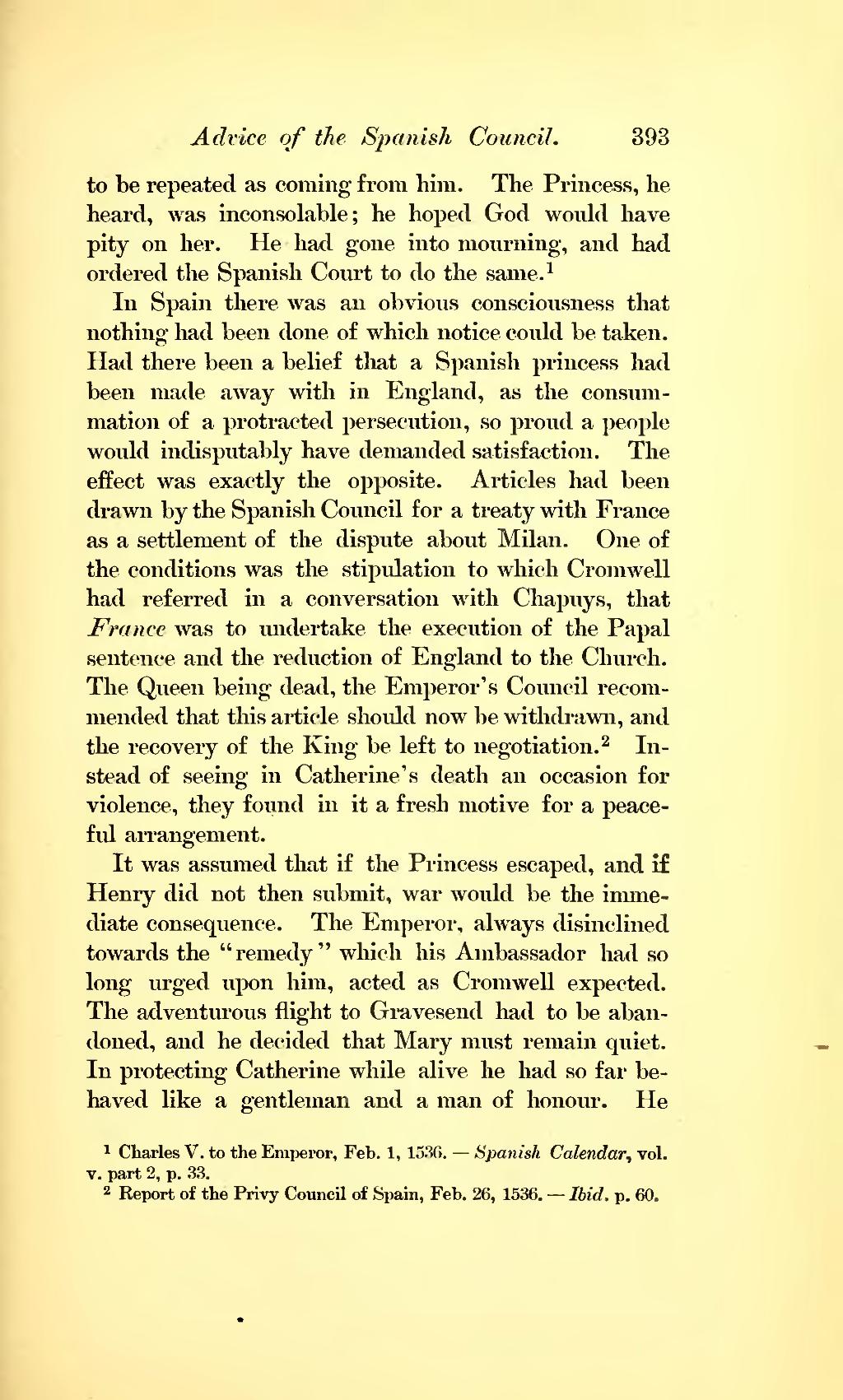to be repeated as coming from him. The Princess, he heard, was inconsolable; he hoped God would have pity on her. He had gone into mourning, and had ordered the Spanish Court to do the same.[1]
In Spain there was an obvious consciousness that nothing had been done of which notice could be taken. Had there been a belief that a Spanish princess had been made away with in England, as the consummation of a protracted persecution, so proud a people would indisputably have demanded satisfaction. The effect was exactly the opposite. Articles had been drawn by the Spanish Council for a treaty with France as a settlement of the dispute about Milan. One of the conditions was the stipulation to which Cromwell had referred in a conversation with Chapuys, that France was to undertake the execution of the Papal sentence and the reduction of England to the Church. The Queen being dead, the Emperor's Council recommended that this article should now be withdrawn, and the recovery of the King be left to negotiation.[2] Instead of seeing in Catherine's death an occasion for violence, they found in it a fresh motive for a peaceful arrangement.
It was assumed that if the Princess escaped, and if Henry did not then submit, war would be the immediate consequence. The Emperor, always disinclined towards the "remedy" which his Ambassador had so long urged upon him, acted as Cromwell expected. The adventurous flight to Gravesend had to be abandoned, and he decided that Mary must remain quiet. In protecting Catherine while alive he had so far behaved like a gentleman and a man of honour. He
